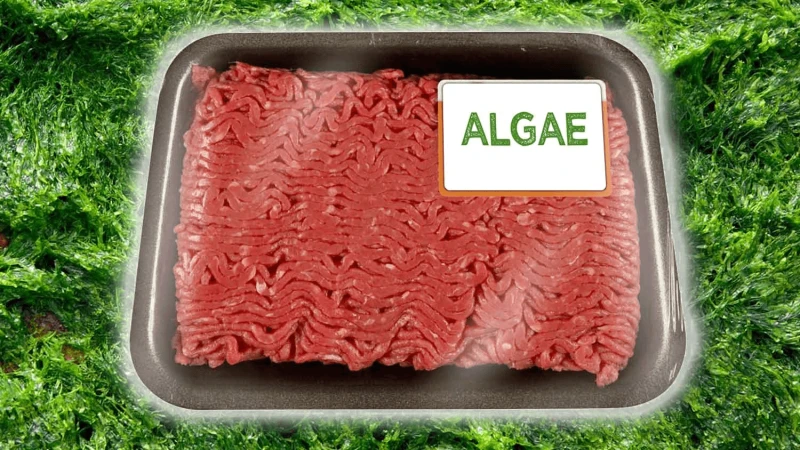Harnessing algae opens a new frontier in sustainable meat-like protein
Harnessing algae opens a new frontier in sustainable meat-like protein


Evidently, the need for alternatives to traditional meat and cheese has been a growing concern for health and the environment. Plant-based options have gained popularity as the vegetarian population grows.
However, achieving the desired texture has remained a challenge. Moreover, some plant-based proteins are less sustainable due to the large amount of resources used to process them.
Enter blue-green algae, specifically the non-toxic variety. Like their name suggests, cyanobacteria belong to the bacterial kingdom.
The University of Copenhagen’s study, led by Professor Poul Erik Jensen, demonstrates how cyanobacteria can act as host organisms for a new protein. Markedly, the protein organizes itself into fibrous strands resembling meat fibers by inserting foreign genes into these bacteria.
This development opens doors for applications in plant-based meats, cheeses, and other foods requiring specific textures.
…
Jensen envisions establishing “microalgae factories” like dairy production, where cyanobacteria cells could be harvested daily and incorporated directly into foods with minimal processing.
While the realization of protein strands from cyanobacteria is still in the future, the study offers a promising glimpse into sustainable and texture-rich food options. With innovations like this, we are paving the way for a more environmentally conscious future.
This is an excerpt. Read the original post here

 | Videos | More... |

Video: Nuclear energy will destroy us? Global warming is an existential threat? Chemicals are massacring bees? Donate to the Green Industrial Complex!
 | Bees & Pollinators | More... |

GLP podcast: Science journalism is a mess. Here’s how to fix it

Mosquito massacre: Can we safely tackle malaria with a CRISPR gene drive?

Are we facing an ‘Insect Apocalypse’ caused by ‘intensive, industrial’ farming and agricultural chemicals? The media say yes; Science says ‘no’
 | Infographics | More... |

Infographic: Global regulatory and health research agencies on whether glyphosate causes cancer
 | GMO FAQs | More... |

Why is there controversy over GMO foods but not GMO drugs?

How are GMOs labeled around the world?

How does genetic engineering differ from conventional breeding?
 | GLP Profiles | More... |

Alex Jones: Right-wing conspiracy theorist stokes fear of GMOs, pesticides to sell ‘health supplements’




 Viewpoint — Fact checking MAHA mythmakers: How wellness influencers and RFK, Jr. undermine American science and health
Viewpoint — Fact checking MAHA mythmakers: How wellness influencers and RFK, Jr. undermine American science and health Viewpoint: Video — Big Solar is gobbling up productive agricultural land and hurting farmers yet providing little energy or sustainabilty gains
Viewpoint: Video — Big Solar is gobbling up productive agricultural land and hurting farmers yet providing little energy or sustainabilty gains Fighting deforestation with CO2: Biotechnology breakthrough creates sustainable palm oil alternative for cosmetics
Fighting deforestation with CO2: Biotechnology breakthrough creates sustainable palm oil alternative for cosmetics Trust issues: What happens when therapists use ChatGPT?
Trust issues: What happens when therapists use ChatGPT? 30-year-old tomato line shows genetic resistance to devastating virus
30-year-old tomato line shows genetic resistance to devastating virus California, Washington, Oregon forge immunization alliance to safeguard vaccine access against federal undermining
California, Washington, Oregon forge immunization alliance to safeguard vaccine access against federal undermining The free-range chicken dilemma: Better for birds, but with substantial costs
The free-range chicken dilemma: Better for birds, but with substantial costs ‘You have to treat the brain first’: Rethinking chronic pain with Sanjay Gupta
‘You have to treat the brain first’: Rethinking chronic pain with Sanjay Gupta
